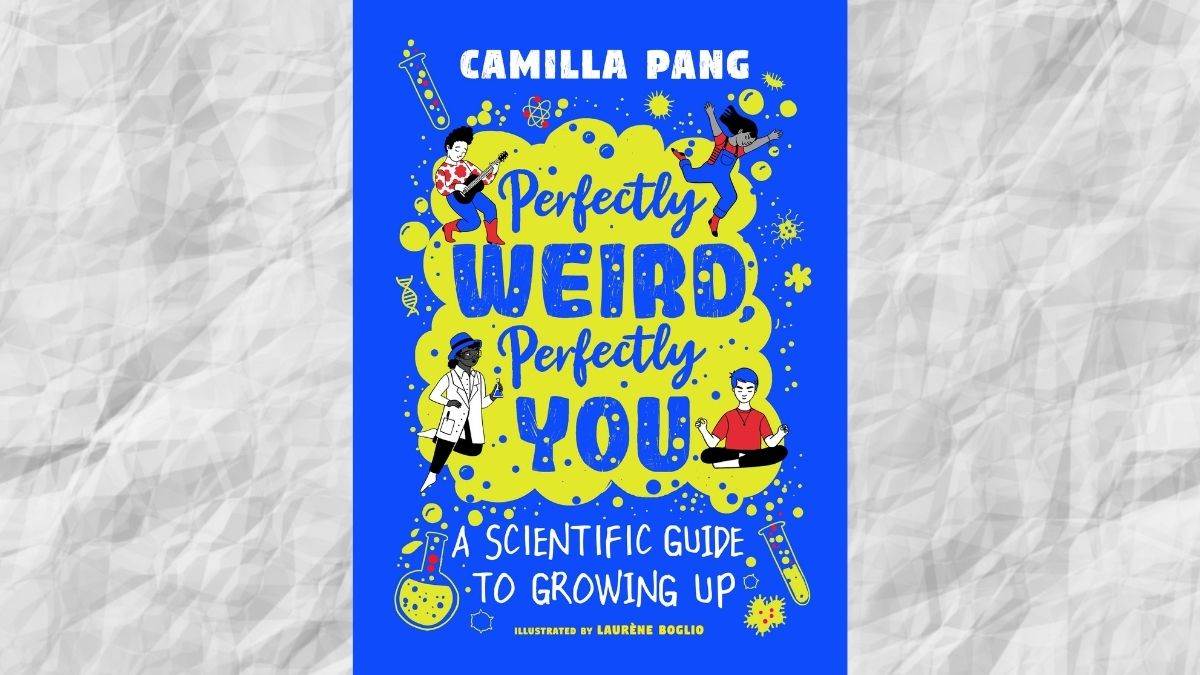Perfectly Weird, Perfectly You author Dr Camilla Pang shares what it's like to grow up with ASD
Published on: 14 Mawrth 2022 Author: Dr Camilla Pang and Sonia Pang
Dr Camilla Pang is proud to be weird - and now she has put that weirdness to use by writing a scientific guide to growing up, Perfectly Weird, Perfectly You, illustrated by Laurène Boglio. Here she tells us her experience of growing up with ASD and shares some helpful tips for parents with autistic children.

My name is Dr Camilla Pang. But you can call me Millie. I want to start by telling you something important about me. I have always been a bit weird.
Actually, quite a lot weird. I was the one in class who always put up their hand but used to get flustered if a teacher picked me out to ask a question. I always had my nose in a book, but I’d also get bored during lessons and be told off for staring out of the window. And I always tried to be polite, but quite often ended up saying something a bit rude by accident.
I’m still pretty weird today. I get massively excited about things, to the point where I can’t stop my body from shaking or I make little squeaking noises.
But sometimes I get so scared that I have to hide under my duvet cover or sit under my desk until I feel safe again. (I am twenty-eight years old.)

There’s a lot about me that doesn’t really make sense. In fact, these are probably my favourite parts of myself. We are all human beings, not robots, and we are all different – weird in our special, sometimes illogical way.
But, as I discovered when I was eight years old, I was different from most people in one particular way. This is when I was diagnosed with autism spectrum disorder, ASD for short.
Autism can be difficult to explain, because everyone on the autistic spectrum experiences it in a different way. But I’ll have a go anyway (with apologies to my fellow ASD crew who may not recognise these things in their own lives).
In general, autism can mean:
- Having very strong feelings that you struggle to explain to other people.
- Feeling overwhelmed by the five senses. Bright colours, nasty smells, strange textures, unfamiliar tastes and loud noises can scare or unsettle you so much that they send your whole body and brain into meltdown.
- Finding it difficult to understand people’s body language and tone of voice (e.g. when someone raises their eyebrows or speaks in a sarcastic or angry way, you might not ‘get’ the message).
- Having very specific routines to live by, to stop yourself from doing everything in the wrong order (like leaving the house before getting dressed properly or trying to eat a meal you haven’t cooked yet).
- Relying on little quirks of behaviour (called tics) to feel safe and calm, most of which are about soothing the senses. These might include repeating the same words over and over, following a routine very closely or making sudden, jerky movements with your head and hands. The repetition of words or movements like this is known as ‘stimming’ (self-stimulation).
These are just a few of the ways people with autism may behave differently, and they are based on my experience (which may not reflect or represent anyone else’s).
For some people with ASD, autism will define and sometimes limit their lives in a major way. For others, it will not make too much difference.
I’m somewhere in between. My ASD meant that I was often confused and scared while growing up. I had to work harder than most people to understand the world and find my place in it. Because lots of people doubted me, I had to learn to stand up for myself and to believe in who I was and what I had to offer the world.
That makes my childhood sound difficult, and sometimes it was. But I don’t regret having ASD, not even a little bit. In fact, I think of it as my superpower. And I’m grateful for it.
One of the main things to bear in mind when supporting or raising a neurodiverse child is that you have to learn as you go and not take their behaviour personally. Having brainstormed with my mum, I wanted to share some of the things that we found were most helpful:
Tips for raising a child with ASD
- Never force a child or try to teach them to change - you have to go with it. No form of education or bribery will force them to be different and, if anything, would create more trauma. The child is never a problem and it isn't their fault. As much as it can be very difficult at times, where it can bring on grief of not having a 'normal child', you need to start celebrating the child you were given.
- If there is a panic attack, weighted blankets, being held safe, warm, tight can help with easing anxiety. Have these in mind especially when in challenging environments such as a birthday party with loud noises, lots of smells of people and food. Make sure they have a safe space to retreat to when they are feeling scared.
- In terms of social life, such as eating in restaurants, make sure you know the menu beforehand, so you are prepared, and invest in 'good behaviour'. Never make the child feel they are to blame for the rules imposed on society - be it sitting 'chair shaped', how they interact, or responding to a wall of a certain colour. Enable them to learn via example.
- Give teachers a checklist to fall back on in different situations of stress, fear, focus, or when encountering triggers. Make the list particular to your child and clear.
- Standing up for your child is one of the most important things you can do in public. Otherwise constantly apologising for their behaviour encourages anxiety in the child who is just trying their best. Later on in life this strength you have shown will translate in them where they in turn can stand up for themselves and live a life they deserve and worked hard for.
Follow Dr Camilla Pang on Twitter.





